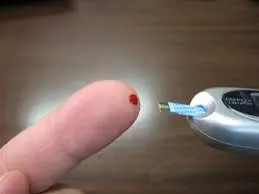
Hearing Loss: An Often Neglected Consequence of Diabetes.
Incidence
A 2008 study by the National Institutes of Health (NIH) showed that “Hearing loss is about twice as common in adults with diabetes compared to those who do not have the disease.” Even those with pre-diabetes had a 30% higher rate of hearing loss when compared to those with normal blood glucose/sugar levels.
Why hearing damage?
Over time, high glucose levels damage blood vessels and nerves throughout the body. The blood vessels that supply the inner ears become also affected as well as the hearing nerves. The longer and the more blood sugar levels are not controlled, the greater the chances for hearing loss become. Aging and exposures to loud sound further aggravate and accelerate the problem.
Know the symptoms
Damage to hearing structures is invisible and silent and progresses slowly. Although doctors monitor patients for long-term complications related to diabetes, such as kidney function and heart disease, hearing loss becomes all too often the neglected consequence of diabetes. Don’t let that happen. Know the symptoms and report them.
Inform the doctor and ask for a professional hearing evaluation if understanding speech, especially in noisy places becomes an issue. Typically, all sounds, speech and music, appear dull to those with hearing loss. The ears feel stuffy and everybody seems to mumble.
TV volumes are cranked up louder and louder. Friends and family members are often the first ones to mention communication challenges. Tinnitus, the infamous buzzing, hissing or ringing in the ears, can be a symptom or warning of beginning hearing damage or already hearing loss.
Keep hearing complications in check:
· Maintain honest communication with physicians and therapists. Don’t skip appointments for check-ups or lab tests.
· Follow medication, diet and exercise instructions exactly
· Monitor blood glucose levels as directed and record all results in a diary for specialist review
· Protect the ears in noisy environments as excessive sound levels also contribute to inner ear and hearing nerve damage.
· Report tinnitus and any hearing loss symptoms to the doctor and ask for a professional hearing test.
· If needed, get a referral to an ear specialist (ENT) or to an audiologist for regular hearing evaluations and targeted care. Check with the insurance plan ahead of time to verify coverage.
******
For presentations on Hearing Safety Training, please contact me through this website or email monique.hearing@gmail.com
To learn more about hearing loss, see my book “What Did You Say?” now in its second, updated edition. Sharing my story and what I had to learn the hard way.